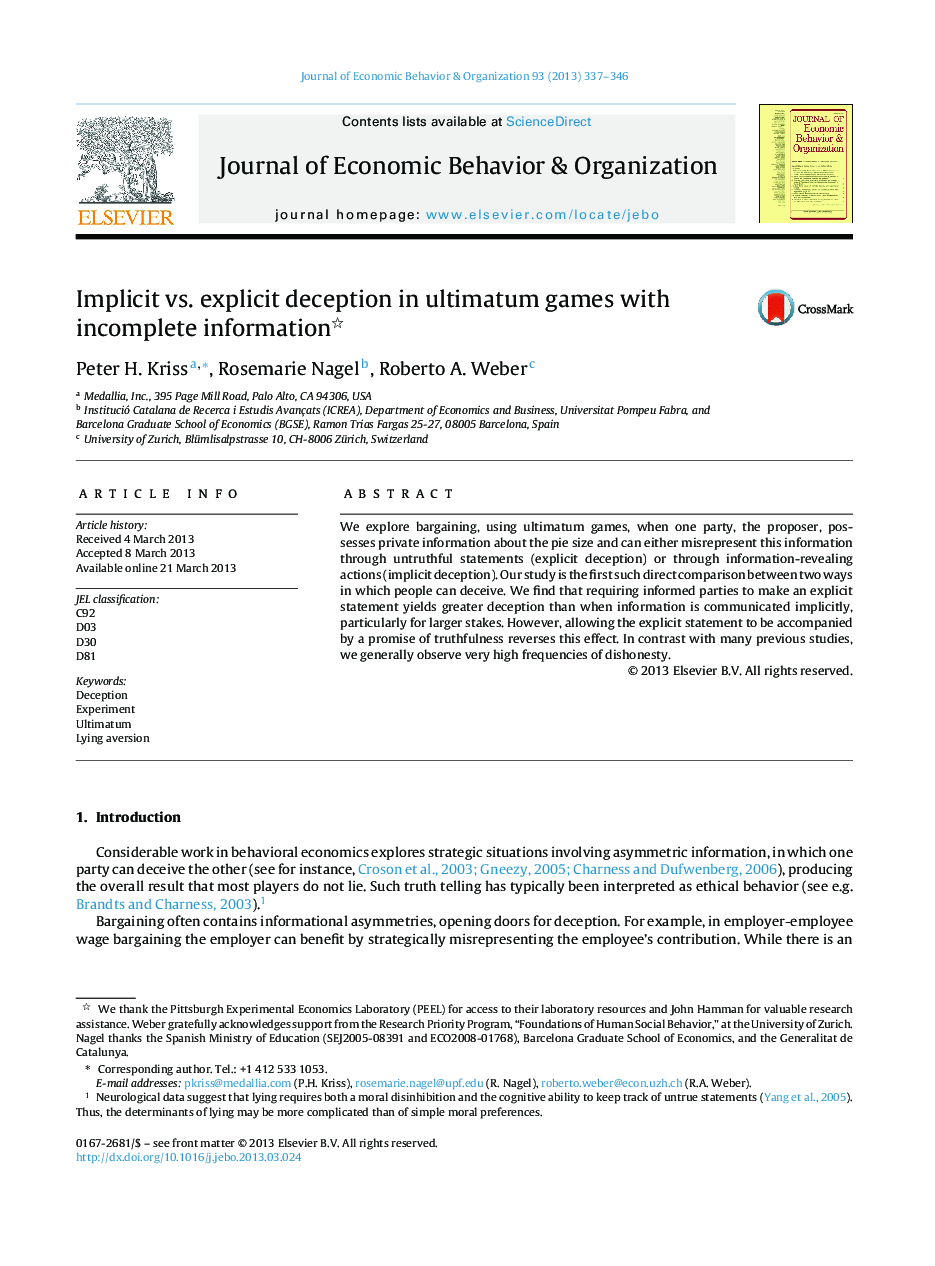| Article ID | Journal | Published Year | Pages | File Type |
|---|---|---|---|---|
| 7243828 | Journal of Economic Behavior & Organization | 2013 | 10 Pages |
Abstract
We explore bargaining, using ultimatum games, when one party, the proposer, possesses private information about the pie size and can either misrepresent this information through untruthful statements (explicit deception) or through information-revealing actions (implicit deception). Our study is the first such direct comparison between two ways in which people can deceive. We find that requiring informed parties to make an explicit statement yields greater deception than when information is communicated implicitly, particularly for larger stakes. However, allowing the explicit statement to be accompanied by a promise of truthfulness reverses this effect. In contrast with many previous studies, we generally observe very high frequencies of dishonesty.
Related Topics
Social Sciences and Humanities
Economics, Econometrics and Finance
Economics and Econometrics
Authors
Peter H. Kriss, Rosemarie Nagel, Roberto A. Weber,
